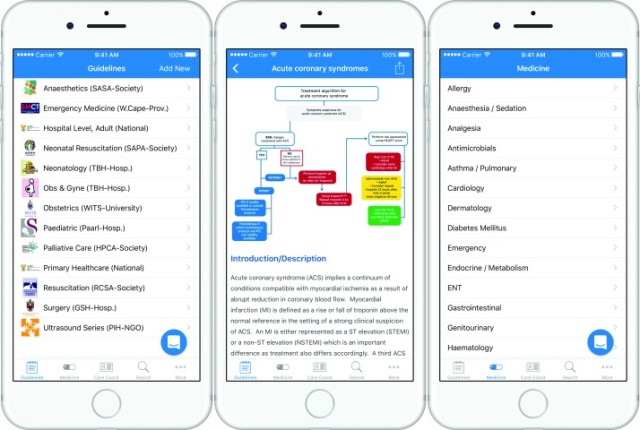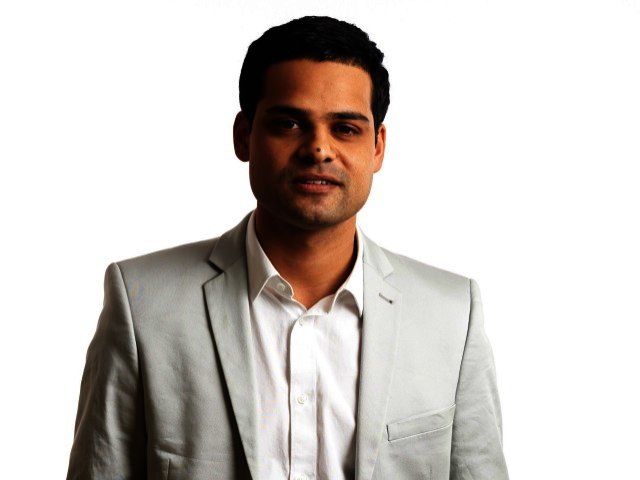Poor point-of-care medical decision-making costs the healthcare sector billions of rand every year, while thousands of patients suffer unnecessarily. The Gauteng Health Department alone has paid out R1.017 billion to settle 185 medical negligence claims since January 2015. Considering the significant additional legal costs that were incurred as each claim was contested, the actual cost to the department is likely far greater. The consequences experienced by the patients behind these claims are untold.
This, says Yaseen Khan, chief executive officer at EMGuidance, a digital clinical support platform connecting medical professionals with locally relevant medicines information, clinical guidelines, and clinical tools, is only the tip of the iceberg. “South African medical professionals are under immense pressure to improve patient outcomes despite often being under resourced. Delivering the best patient care in a complex and overburdened health system is a consistent challenge faced by medical professionals, and is central to improving the entire health system. The expenditure on medical negligence claims is but one indicator that we are not rising up to this challenge. Recent figure state the potential claims against the Gauteng Health Department are close to 13.5 billion, or nearly 40% of the entire provincial health budget. The budgetary shortfall created through this again undermines healthcare providers’ ability to improve patient outcomes, creating a perpetual lose-lose situation. The only way to break this cycle is to disrupt it with a point of care platform that empowers the health-force and immediately improves the accuracy of diagnosis, treatment, and prescribing,” explains Khan.
A key part of the issue is the overworking of doctors and other point-of-care medical professionals as a result of the on-going skills shortage in the healthcare sector. This creates highly pressured decision-making circumstances. Doctors and medical professionals therefore have a pressing need to efficiently access the most appropriate, locally relevant treatment and prescription recommendations, instead of having to rely on ‘Googling’ and finding internationally authored content, which doesn’t speak to local patient, disease, and health-system factors. “The issue of overworked doctors received headlines in 2016, with some doctors working shifts of up to 36 hours at a time. These long hours severely impact doctors’ ability to make accurate medical decisions at the point of care, which often undermine doctors’ ability to improve patient outcomes. A study conducted in 2006 found that staying awake for extended hours led to a 300% increase in preventable mistakes that caused patient deaths.”

Reengineering point of care decision-making in healthcare
Khan and co-founder Mohammed Dalwai decided to create a platform for point-of-care medical professionals such as doctors, nurses, clinicians, and pharmacists, providing free, instant access to locally relevant and up-to-date treatment guidelines, protocols and consistently updated medicines information. “By providing a centralised digital access point for locally relevant clinical guidelines on behalf of a wide range of medical institutions, doctors are equipped with up to date, locally relevant information that can eliminate inaccurate or inappropriate decisions at the point of care. Through our proprietary, interactive, and consistently updated, and fully-referenced medicines section, created in partnership with a national network of pharmacologists, specialists and medical institutions, EMGuidance also guides medical professionals to provide the correct prescriptions, playing a huge role in improving the accuracy and efficacy of treatments.”
As an example, Khan cites a recent partnership with the South African Antibiotic Stewardship Programme “When anti-microbial resistance patterns change, we would be able to send a push notification to doctors’ phones to alert them, presenting them with the relevant anti-microbial therapy guidelines for their region. By creating a direct link to primary healthcare providers, we can facilitate an improved flow of contextual information that can reduce errors and enable improved patient outcomes.”
Leveraging data for improved patient care
Growth on the platform has so far been largely organic, with word-of-mouth driving downloads of the mobile app. “We have more than 5 500 registered medical professionals accessing the platform, as well as a critical threshold of core partners from the public and private sectors. We’re now starting to see certain usage patterns and trends emerging, which will guide the development of additional functionality. For example, since we track usage, anonymously, by location, we are able to detect increased volumes of searches relating to certain conditions, which may help inform how healthcare authorities react to an outbreak of specific diseases in a certain region.”
Khan stresses the importance of providing accurate and practical clinical guidelines and medicines information to point-of-care healthcare professionals. “Many of the current healthcare resources take months, or years, to update with new information, and often exclude medicines providers who are unwilling to pay a fee to be included. Our platform is updated consistently to ensure users always access the most up-to-date and relevant treatment and referral guidelines and medicines information. Another important thing we are also seeing is how junior doctors are using the platform as a bridge between highly-theoretical classroom knowledge and their practical day-to-day field work.”
The future of (tech-assisted) healthcare
EMGuidance is available in South Africa via the Apple App Store and Google Play Store. A lite version is available in several other African countries including Tanzania, Botswana, Ghana, Cameroon, Rwanda, Ethiopia, Sudan, Egypt, Zambia, Namibia, Botswana, Uganda, and Kenya.
“We’ve developed the platform and connected a broad range of primary healthcare role players in an independent, trusted and controlled environment. We expect future development to be guided by the needs of the doctors, clinicians, nurses, pharmacists, medicines providers and healthcare regulators using the platform, who all provide important input via formal feedback channels as well as through their day-to-day usage patterns. Based on initial interactions, we are considering incorporating things like in-app doctor-to-doctor communications, digital prescriptions, and the integration of point-of-care medical devices. The benefit of taking a platform approach is that we can build a far richer suite of resources that are tailored to the specific needs of our users.”
For more information about EMGuidance, please visit www.emguidance.com.





